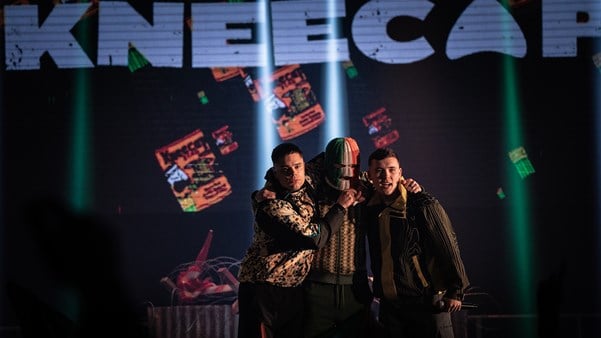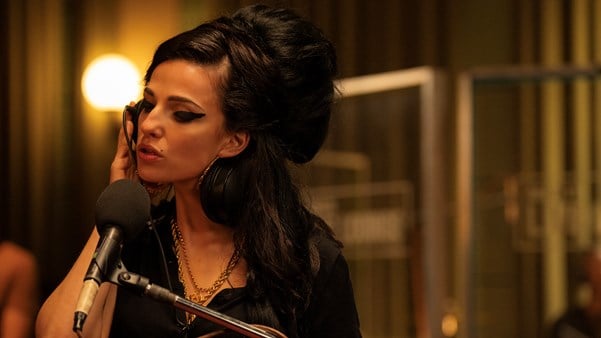Though the music biopic has received some bad press recently, that hasn’t always been the case. Rōgan Graham looks at the subgenre’s creatively rich offerings – a group to which Kneecap certainly belongs.

Hungry for awards traction and reliable box office, Hollywood has been going music-biopic mad of late, with estates happy to cash in on pop-legend nostalgia, washing out a genre that has been (and still has the potential to be) an intelligent way for stars to metatextuality riff on their personas. Since Rami Malek’s Oscar-winning fake teeth in Bohemian Rhapsody (2018), we have witnessed Rocket Man (2019), Judy (2019), Respect (2021), I Wanna Dance With Somebody (2022), Elvis (2022), One Love (2024) and Back to Black (2024), with the Michael Jackson biopic Michael and Timothée Chalamet-cum-Bob Dylan vehicle A Complete Unknown on the way. But what is the function of a music biopic where comparatively few people have heard its subjects’ music?
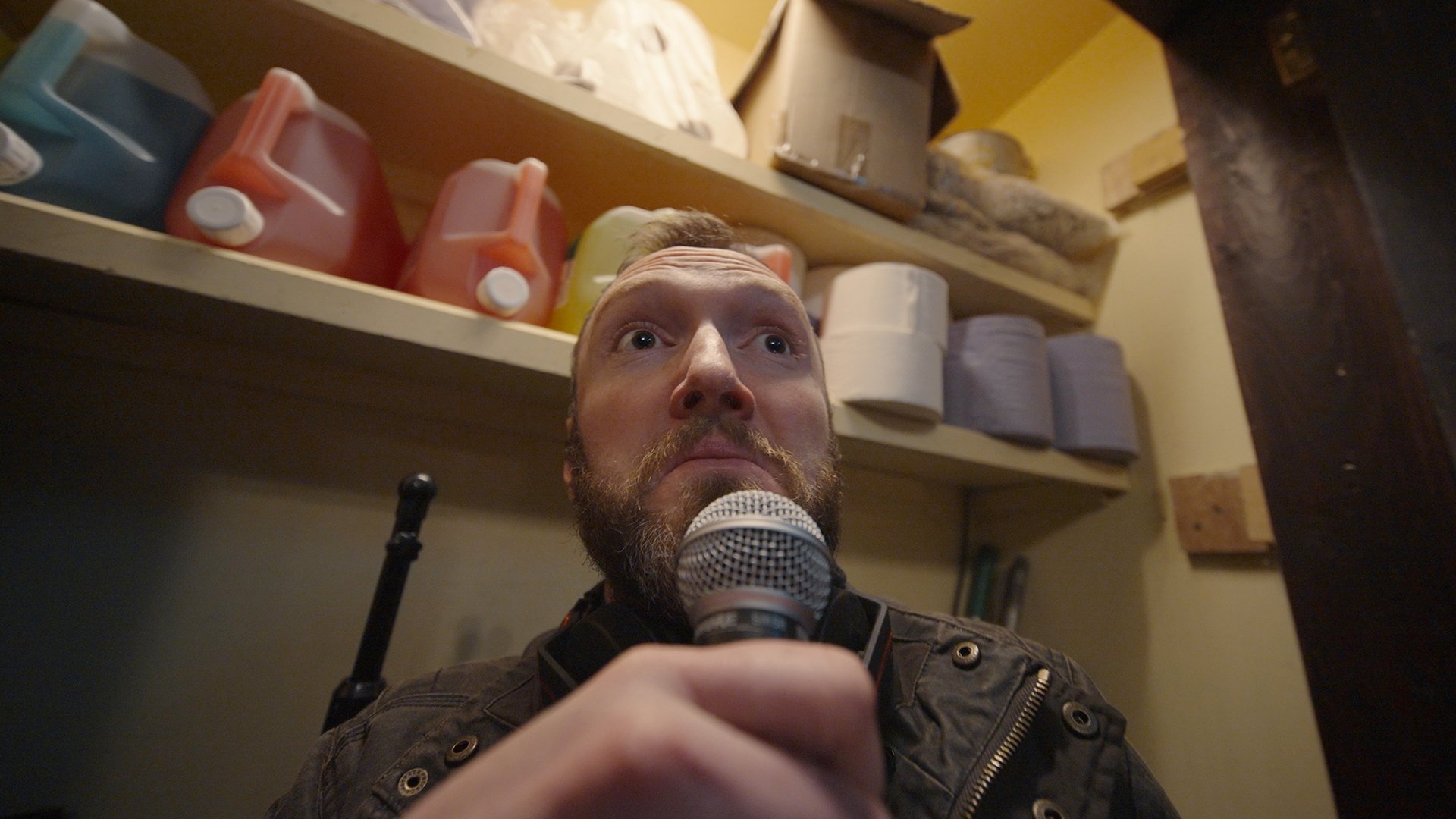
In his debut feature, British director Rich Peppiatt tells the story of the divisive Irish Republican rap trio Kneecap, with the musicians playing themselves in their eponymous biopic. Kneecap, in cinemas this Friday, premiered at Sundance in January months before the band had released their debut album, Fine Art. It took away the NEXT Audience Award at the festival, and has continued racking up prizes since. What sets Kneecap apart from other white rappers (and we’ll get to the most famous one shortly) is that they make music in the Irish language, a language that only roughly 80,000 people speak.
The film follows childhood friends Liam (stage name Mo Chara) and Naoise (Móglaí Bap), who hail from West Belfast, as they run around the city selling drugs they ordered online, getting high and hosting illegal raves. They predominantly communicate in Irish as Naoise’s father (played by Michael Fassbender) tells them when they’re children that every word spoken in Irish is a bullet fired for the freedom of Ireland.
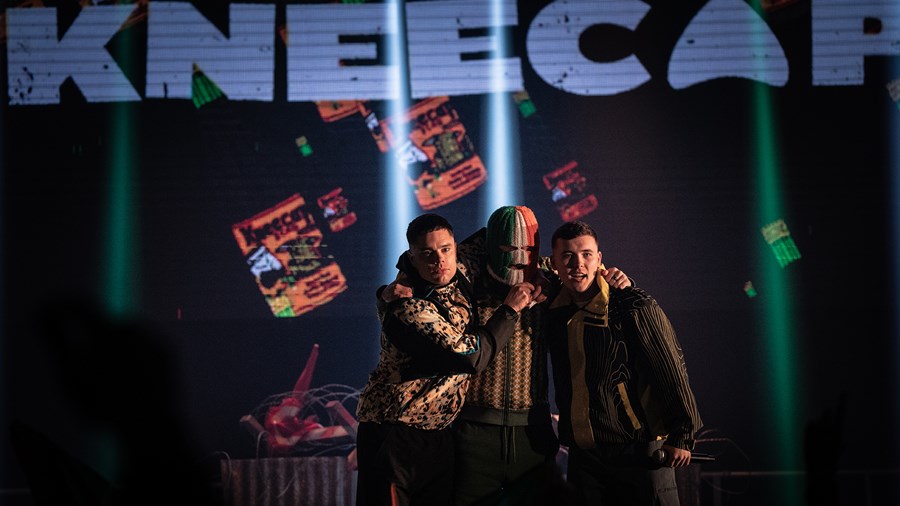
Kneecap (2024)
One night, Liam gets arrested and refuses to speak to the police in English. That’s when he meets school teacher turned interpreter JJ, now more commonly known as DJ Próvaí. JJ finds Liam’s lyrics (and a strip of acid) in his notebook, and convinces him to record a song with him. As the film progresses, the fight for language justice takes the forefront over the band’s star mythos. At this stage, they have none; instead, their existence is a gateway to Irish colonial history and its present-day repercussions as the lads make tongue-in-cheek jokes about a very real generational trauma.
With witty voiceover, heartfelt parental drama and mind-melting party scenes, the band’s arc in the film ends with them making their first single. For Kneecap, who at this point are touring mid-sized festival stages and not yet headlining arenas, this humble ending matches up with what we know of the band. However, when it comes to musicians, in particular rappers, playing themselves in a biopic, there is a history of tiptoeing around the stardom.
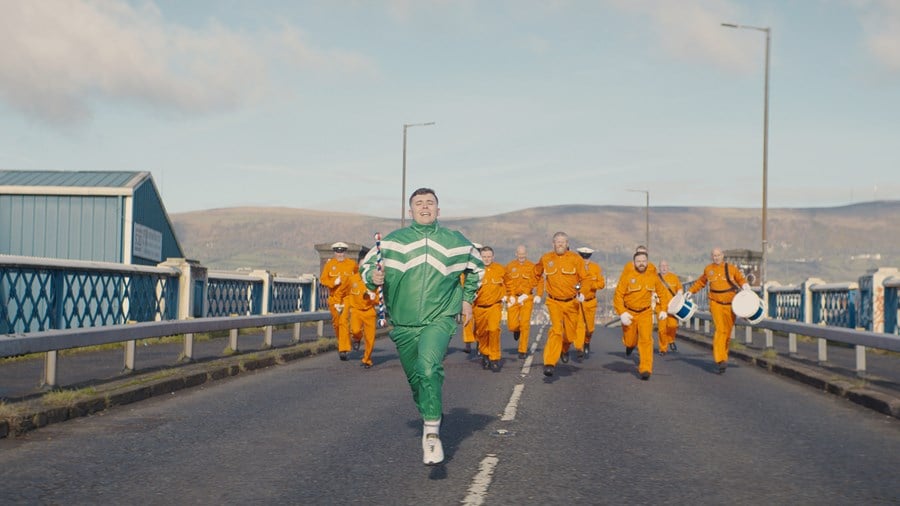
Kneecap (2024)
In 8 Mile (2002), we follow the pre-fame day-to-day life of Jimmy ‘B-Rabbit’ Smith, played by Eminem. He lives in a trailer park, manages a tense relationship with his mother and battle raps – all of which we’re familiar with from Eminem’s music. At the time of release, the hip-hop artist had two number-one albums under his belt. The triumph of 8 Mile is that, through a week of turmoil and betrayal, we see B-Rabbit bounce back and win the weekly local rap battle, defeating the African American Papa Doc by outing him as middle-class and thus less authentic than B-Rabbit’s ‘white trash’ self. Get Rich or Die Tryin’ (2006), starring Curtis ‘50 Cent’ Jackson (Eminem’s label mate) as himself, fulfils much the same function. It spans decades from childhood to his first mixtape, cementing the lore he rapped about in his first two number-one albums. That’s to say, the working-class origins are key to cementing the authenticity of rappers, even when that reality is no more.
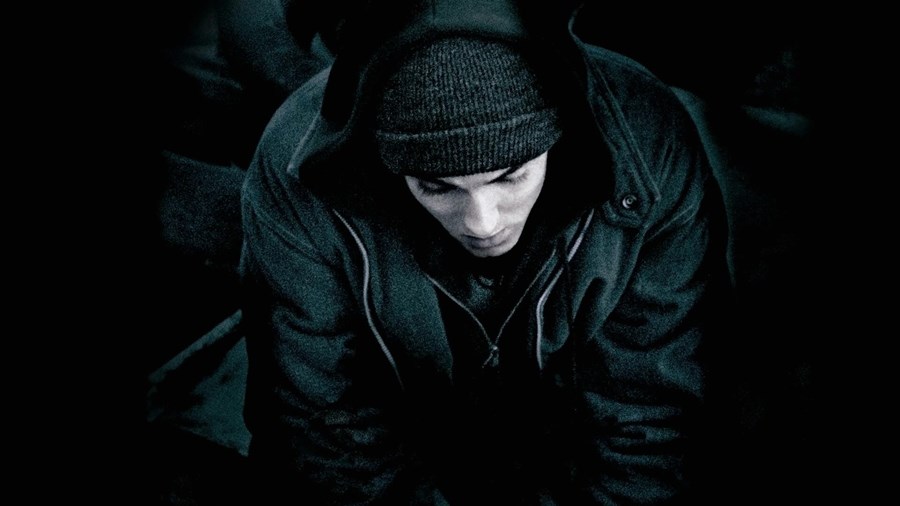
8 Mile (2002)
But before rappers were solidifying their legend, megastars were poking fun at the farce of fame, and fleecing fans more creatively. The unfairly maligned Spice Girls movie Spice World (1997) takes a fun and purely fictional approach to the band’s stardom. The singers question, then double down on, their public personas, while the evil tabloids and Hollywood executives alter the plot of the movie in real time. Over the end credits, the singers speak directly to the camera, knowing the audience of teen girls will shriek when Posh Spice says, ‘Hey you! I like your dress!’
This style of metacommentary has more in common with the beloved Richard Lester picture A Hard Day’s Night (1964), which depicts a hectic 36 hours where The Beatles are on the run from their fans. Critically acclaimed and still beloved, A Hard Day’s Night spawned its own copycat in the form of NBC sitcom The Monkees (1966), which required an extensive casting process to find its own musical ‘fab four’, the band behind the lyrics ‘And then I saw her face/Now I’m a believer’ becoming a success independent of the fictional show.
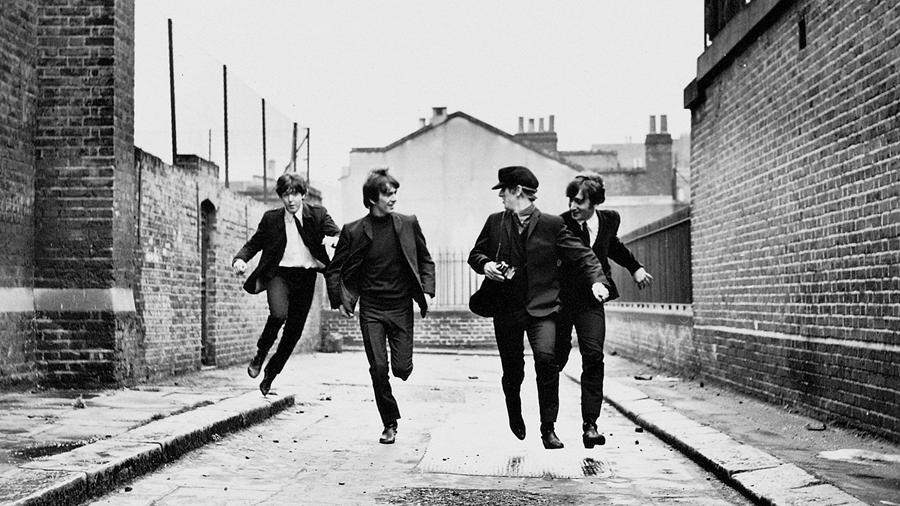
A Hard Day's Night (1964)
However, since the mid-2010s, pop mega-stars have typically taken one of two avenues as their means of self-interrogation. When Beyoncé released Lemonade in 2016, the star – whose pop songs may have previously seemed impersonal, though vocally impressive – explicitly centred her private life in the narrative of her album, with complex explorations of child loss and infidelity. While the visual album had been done before, by artists like Prince, and Janet and Michael Jackson, Lemonade propelled the medium to new heights with demands for #TheVisuals arguably superseding those for new music. Since then, artists like Janelle Monáe (Dirty Computer, 2018), Solange (When I Get Home, 2019), Halsey (If I Can’t Have Love, I Want Power, 2021) and Jennifer Lopez (This is Me.. Now: A Love Story, 2024) have turned their hand to the medium, morphing into alter egos familiar and new – with varying degrees of success.
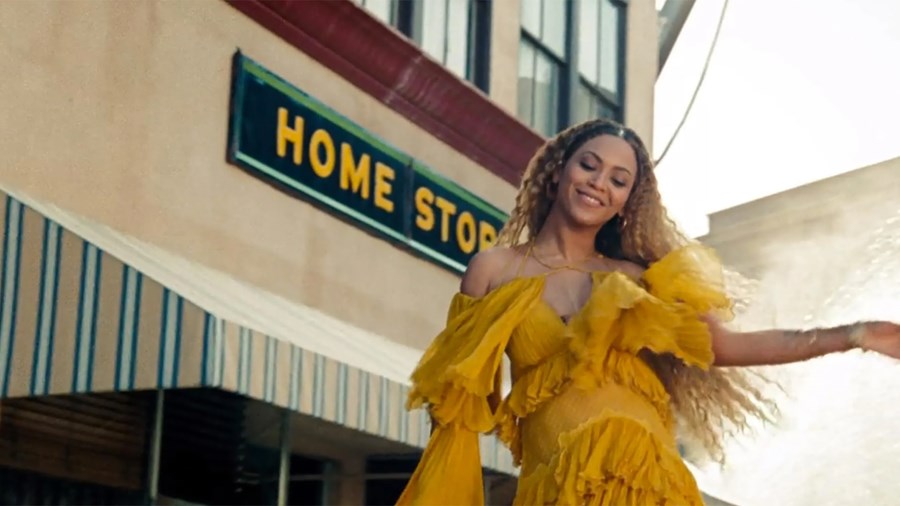
Lemonade (2016)
Many of these visual albums are reportedly self-funded, but glossy, over-produced ‘documentaries’ with fans’ expectations – not critics’ – at the forefront are continually commissioned by streamers such as Apple TV+, which forked out big bucks to Billie Eilish in 2021 for The World’s a Little Blurry (what would she be worth now, two Academy Awards later?). Blackpink, Taylor Swift and Selena Gomez, too, can be seen cashing in on the tried-and-true method of revealing little to nothing about themselves through the trite intimacy of iPhone footage emblazoned on the big screen. Stars of yesteryear, at least in retrospect, appeared to have more fun with the brand-management aspect of their visual output, and at least attempted to push the boundaries of the visual form in whatever meta-docudrama-satire hybrid that might take.
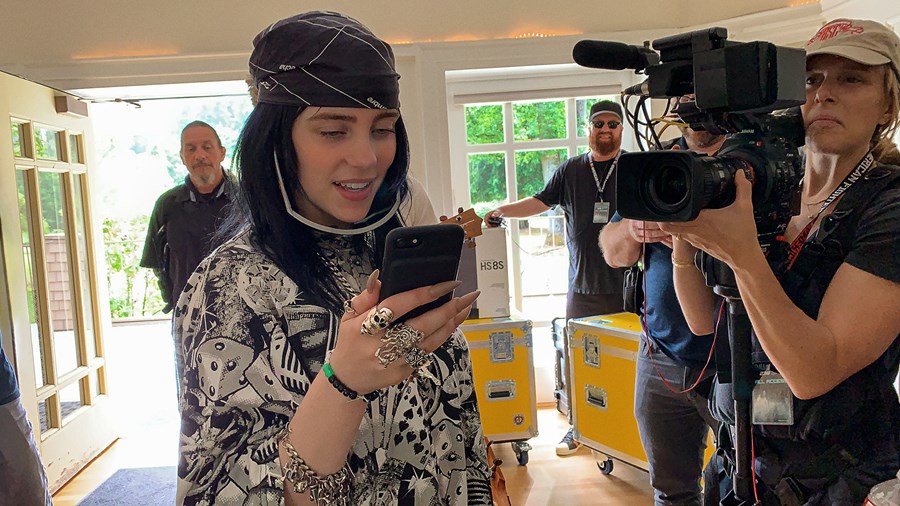
The World's a Little Blurry (2021)
It’s unfair, perhaps, to equate Kneecap with these mega sensations, but highlighting these similarities makes you appreciate just what the form can do. Critic Robert Daniels first drew the comparison between Kneecap and Perry Henzell’s The Harder They Come (1977), the film credited with bringing reggae to the world, which stars Jimmy ‘You Can Get It If You Really Want It’ Cliff as Ivan. Both films centre on young men dabbling in petty crime and pursuing their dreams in the fractured and conservative politics of post-colonial islands.
Franco Russo’s seminal Babylon (1980), wherein Black British singer Brinsley Forde of Aswad plays Blue, also follows the trials of trying to make it as a musician – in this case facing off with Thatcher-era austerity, the racist police and the National Front in south London. Though neither Babylon nor The Harder They Come are strictly biopics, they – like Kneecap – contextualise the strife of these artists and centre the necessity of music-making against the wider hostility to it. It’s their regional specificity, and close, unashamed look at working-class hustle, that brings new narratives to the fore and creates compelling cinema.
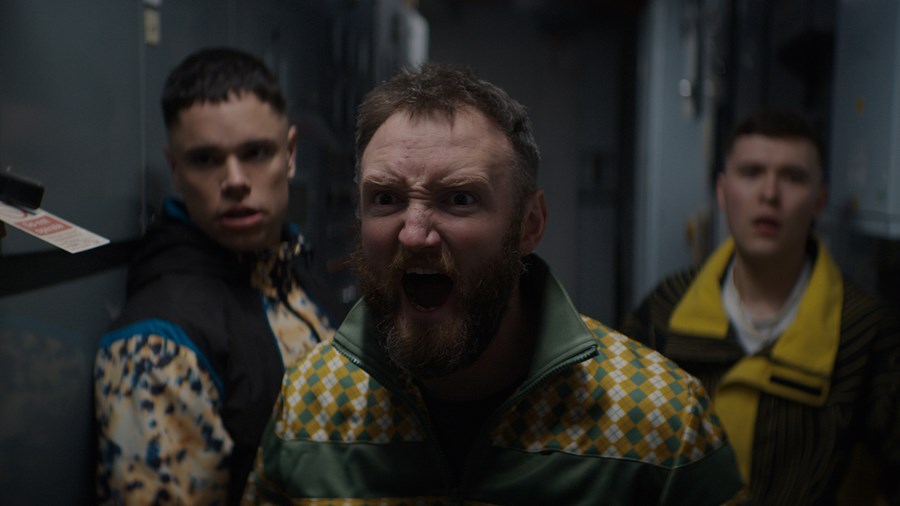
Kneecap (2024)
Against an often uninspiring churn, the vitality of Peppiatt’s Kneecap is beyond necessary. After years of turmoil, you need not recoil at the term ‘music biopic’. At this stage in the band’s career, there seems to be no spurious narrative to protect, and creative liberties have been allowed – it was not Liam, for example, but another friend who was arrested and spoke only Irish to the police. Cinema and (pop) music fictions go hand in hand. The first talkie, The Jazz Singer (1927), tells the rags-to-riches tale of its star Al Jolson in a story based on his own life. Arguably, the music biopic and abstractions of it are as old as cinema itself. With its considerable style and deeply embedded politics, Kneecap has breathed new life back into the genre. It is sure to stand the test of time.
WATCH KNEECAP IN CINEMAS


